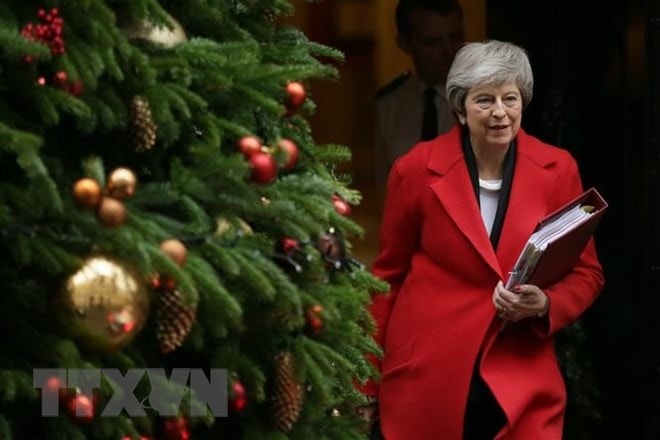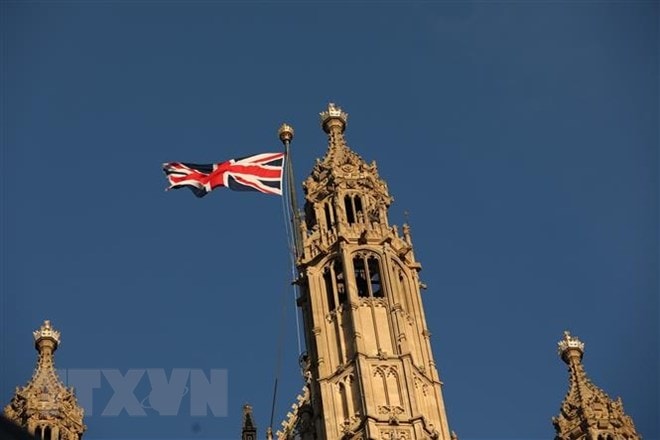117/200 votes against British Prime Minister
Surviving a no-confidence vote with 200 votes in favor would be a major victory for Mrs. May, who became leader of the Conservative Party in 2016 with 199 votes in favor.
 |
| British Prime Minister Theresa May in London. Photo: THX/TTXVN |
On the evening of December 12 (local time), British Prime Minister Theresa May overcame a vote of no confidence in the Conservative Party with 200 votes in favor and 117 votes against.
This was a predictable result, because right after the plan to vote of confidence in Mrs. May was announced that same morning, the majority of Conservative MPs in the House of Commons, including all cabinet members, publicly declared that they would vote to continue supporting her as leader of the Conservative Party, along with her position as British Prime Minister.
Even as the voting and counting process was still taking place in the House of Commons, a series of prominent figures in the Conservative Party publicly posted their votes in support of the Prime Minister on social networks.
MP Alan Duncan called on his Conservative MPs to back Mrs May, “for the good of Britain, the Government and the Conservative Party.”
Meanwhile, International Trade Secretary Liam Fox said this was a “completely inappropriate” time for a race to replace Britain's leadership.
This victory becomes even more meaningful at this difficult time for the British Prime Minister in affirming his prestige in the face of pressure from all sides in recent days, and gaining more support from Conservative MPs for the Brexit agreement reached between the UK and the EU in November.
This confidence vote is a direct result of the British Prime Minister's decision to postpone the Brexit deal being passed in the House of Commons on December 11 as originally planned, because the prospect of failure is almost certain when more than 100 Conservative Party MPs have confirmed that they will vote against it.
Mrs. May's Conservative Party only won 317 of the 650 seats in the British House of Commons after the early election in 2016, and had to form a coalition with the Northern Ireland Liberal Democrats (DUP) (with 10 seats in the House of Commons) to be able to form a government.
 |
| Outside view of the House of Commons building in London. Photo: THX/TTXVN |
UK Finance Minister Philip Hammond has called the Conservative MPs behind the no-confidence vote “extremists” seeking to push for a no-deal Brexit.
Surviving a no-confidence vote in her Conservative Party does not change the fact that the biggest challenge for the British Prime Minister in the coming days will still be how to pass her Brexit deal in the House of Commons. If Mrs May fails to win convincing concessions from meetings with European leaders between now and the end of the week, it is unlikely that the current Brexit deal will win a majority when it is re-passed after Christmas.
In addition, there is the risk of another vote of confidence in the British Prime Minister and her government, this time in the House of Commons, initiated by the opposition Labour Party.
The British Prime Minister affirmed that she is still making progress in negotiations with European leaders, and pledged to carry out the result of the British voters' referendum on Brexit.
Before the no-confidence vote, Mrs. May also warned that any attempt to replace the head of government at this time would only threaten to delay or completely reverse the Brexit process, because whoever succeeds her will not have enough time to negotiate a deal with the EU.
The result of the no-confidence vote means that Mrs. May will be safe in her position for the next 12 months. However, in a speech to MPs just before the no-confidence vote, the British Prime Minister affirmed that she will not continue to lead the Conservative Party in the next general election in 2022. She also emphasized the policy of not holding an early election, despite pressure from the opposition in the House of Commons.
Announcing her plan to step down as party leader and prime minister early could be seen as part of a “bargain” package by Mrs. May, aimed at convincing “rebellious” Conservative MPs to support her in completing Brexit before withdrawing.
